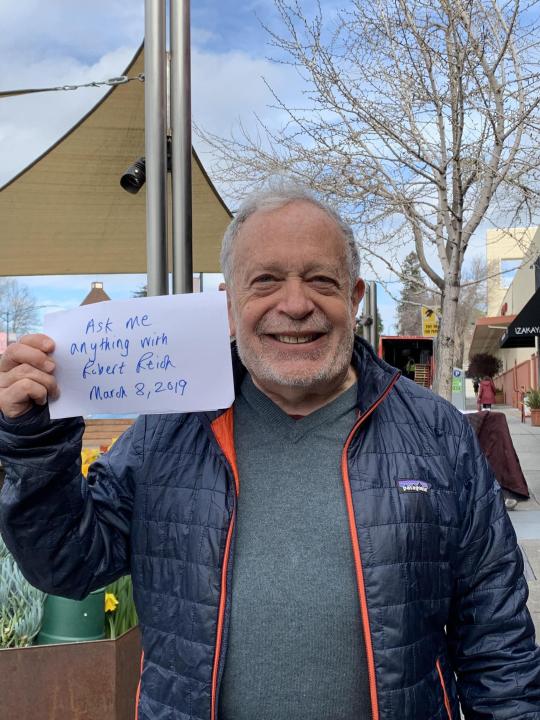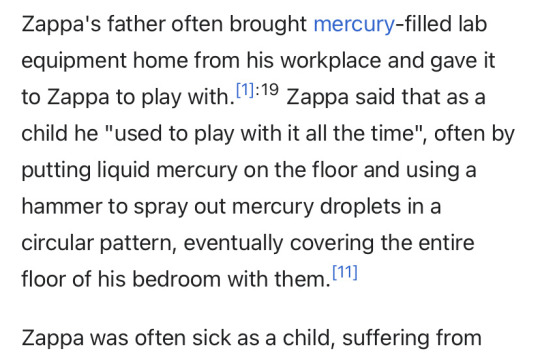Text
call his pussy british the way that I’m innit
86K notes
·
View notes
Text
they need to invent a writing that is easy. and fast also
26K notes
·
View notes
Text



Robert Reich, Former US Secretary of Labor, Leftist Economist Political Commentator as well as professor, author, lawyer, father of Dropout CEO Sam Reich. god in heaven help me i'm so down bad. please don't credit me for this
3K notes
·
View notes
Text
important ! In recent years especially this year I’ve noticed a lot that the internet language picked up so many Islamic phrases and, from a muslim perspective, it makes the internet a little more welcoming.
the thing is, a lot of the time with Islamic phrases you have to be careful about when and where to say them they hold their own weight and demand their own respect so here is a list explaining each phrase and some notes about it.
In sha allah
It means “ If God wills “. Muslims say it because we’re unaware of what future holds it’s actually blasphemous to claim to know the future, so saying so means “ If it’s the will of god it will happen if not it won’t “ and you’d say it about future events.
side note, it’s also a polite way of saying No. for example, someone asks you to do something and you say in sha allah. Technically you’re not saying yes or no, and if it’s not in god’s will it won’t happen.
Ma sha allah
It means “ this is what god intended “ and it’s a compliment. Saying so is like saying WOW! But it’s also kind of a prayer of protection? If I see someone with pretty hair I should say “ Ma sha allah your hair is very pretty “ the ma sha allah protects the person from the evil eye. By saying that I’m also saying I’m not jealous I’m genuinely enamored and I don’t wish any harm to go to it.
Astagfurullah
it means “ to god I repent “ or “ from god I seek forgiveness” it’s usually used when you make a mistake but people also use it when they see something bad or when they want to avoid saying something bad. Like once my card refused to work and I’d say that so I won’t say any curse words and to calm down my anger
wallah/wallahi
okay this one is important. This one shouldn’t be used so lightly. It means “ by god’s name “ and it’s basically swearing in Allah’s name. You are only supposed to say it if you genuinely mean what you’re saying. It’s such a heavy word that I only say it very rarely and if you say it and don’t follow up on what you said you have to fast for three days as repentance.
ya allah
ya is an addressing word? Like talking to someone or calling them? Like saying O’ ( someone ) so ya allah means O’ god
Al hamdullilah // hamdullilah
it means ‘ praise/thanks to god ‘ said when something good happens or when you feel relieved about something— for example, my shirt is stained badly and I’m worried it won’t clean well. I clean it and the stain is gone so I say “ al hamdullilah “ kind of like phew!. Sometimes people say it as an answer when they’re asked how they are it can either mean things are good or bad but we preserve .
One more note is that with the name of Allah you should also be careful it’s not supposed to be written on papers that’ll get stepped on or lightly used in art because it also has its own weight it’s regarded heavily. Like even in home decorations it should be elevated and not overshadowed. If I have to throw away a paper I have to sit down and color over the name of Allah or burn the papers so it won’t get thrown in trash.
another note is that those phrases aren’t Muslim exclusive. Some Arab non-Muslims use them as well. This is only my explanation from a Muslim perspective.
Another another note is this is what I can remember at the moment but if you have additions or enquiries let me know
9K notes
·
View notes
Text
the curse of adhd:
i will remember with absolute clarity, when the thought strikes me that i have a text to send someone, that this is the fourth time in three days i've attempted to send this specific text
i will forget, in the time it takes me to pick up my phone, that i picked it up intending to send a text
12K notes
·
View notes
Text
*based solely on the medication situation, not your personal ability to survive an apocalypse (because who knows what type of apocalypse it is!)
#i would only be miserable for about two weeks#then i would be fine#maybe depressed but i feel like in an apocalypse situation id have more pressing issues lmao
2K notes
·
View notes
Text
I miss when sci fi was allowed to be goofy and weird and long running, with a lot of daily life plots and silly costumes and fun real sets.
nowadays it's trying so hard to be prestige television, and intelligent, without realizing that the best sci fi could be that AND ridiculous. it's all CGI and brooding and people being sad on sad looking gray planets.
I also dislike how modern sci fi is dystopian this, dystopian that.
you know, farscape is technically a dystopia, but it still let itself be a fun one.
maybe your dystopian sci fi needs puppets.
2K notes
·
View notes
Text
Google is actively blocking Captcha on Firefox
Firefox users have noticed that captchas - both the picture kind and the click the box kind - are not resolving on Firefox. Tests on Chromium based browsers show that it works perfectly fine on them. It is also known that Chrome will be disabling all ad-blockers in June when it moves to Manifest v3, which will greatly limit what extensions can do.
If you use Firefox, there is an extension called User-Agent Switcher and it allows you to change your browser's UA to Chrome. This will allow you to bypass reCaptcha/Captcha blocks set up by Google and make them function properly.
It could be a code snafu on Google's part - but given how predatory they have been acting lately, I'm going to guess not. Don't get locked out of your websites or feel forced to use Chrome again just to browse.
28K notes
·
View notes
Text
Idioms in Catalan with a religious origin
There's quite a lot of idioms that we say in everyday life, outside of the context of religion, but that come from religious stories or events.
Most of them come from Christianity, and many of them are shared with other Romance languages or other languages from historically Christian countries. To keep this list accessible to everyone regardless of cultural background, I will include the literal translation to English and also an explanation all of them.
Let's see how many of these you can understand before seeing the explanation. Let us know in the tags!
1. Fer Pasqua abans de Rams = "to do Easter before Palm Sunday", meaning to get pregnant, have a baby, or to have sex before getting married. Nowadays it's used in a more general sense to mean to do something before it's time (like English "put the cart before the horse"). Palm Sunday is a holiday celebrated the week before Easter.
2. Per a més inri = "for more INRI", used to add a bad thing on top of something else, making a situation even worse or more humiliating. It's a reference to the sign that said "INRI" (stands for the initials of "Jesus of Nazareth King of the Jews" in Latin) that Roman soldiers hanged on Christ's crucifix to make fun of him.
3. A la babalà = "in the babalà way", meaning to do something without having thought much about it. But what does "babalà" mean? This word doesn't exist in the Catalan language outside of this expression. It comes from the Arabic Alà bâb Allâh which means "in God's hands".
4. On Crist va perdre l'espardenya = "where Christ lost his sandal", or on Crist va perdre el barret = "where Christ lost his hat", meaning somewhere very far away and usually in the middle of nothing. I don't know of any story that has Christ lose his sandal or hat.
5. Perdut de la mà de Déu = "lost by God's hand", meaning a place in the middle of nowhere.
6. Ser un calvari ="to be a calvary", meaning that something is a cause of suffering. You can also hear quin calvari! = "what a calvary!". This is a reference to Mount Calvary, where Christ was crucified.
7. Endavant les atxes = "ahead with the candles!", meaning "keep going!", used to encourage to keep going in a negative situation with difficulties or a situation that you would have preferred to avoid. An atxa is a kind of big candle that the first people in a religious procession carry. This was the shout that would start a procession.
(Note: in recent years, Spanish media has used this idiom as supposed proof that Catalan independentists who said it are calling for violence, using a fake translation that assumed that "atxa" must mean the same as Spanish "hacha", meaning "axe" 🪓, because the pronunciation is almost identical. This is false, when people were saying "endavant les atxes" they did not intend any meaning related to "bring the axes". This was used to justify violence against Catalan activists, but has no ground in reality. "Axe"🪓 in Catalan would be "destral".)
8. Net com una patena = "as clean as a paten", meaning very clean. A paten is a kind of small dish used in Catholic mass, where the blessed sacramental bread in placed on.
9. Acabar com el rosari de l'aurora = "to end up like the dawn rosary", meaning to end very, very badly, usually in violence. The dawn rosary used to be a procession that was done in the early morning of certain holidays while praying the rosary. The idiom (which also exists in Spanish) comes from the year 1868. Around those years, there were many anticlerical riots, while the Catholic church kept doing the dawn rosary on the streets and often assigning it political meaning. In Barcelona and other cities, anticlerical protestors tried to stop the dawn rosary from happening, and it ended in violence and blood.
10. Plorar com una Magdalena = "to cry like a Magdalene", meaning to cry a lot and very desperately. This is a reference to Mary Magdalene, a character from the Bible's New Testament who cried when she met Christ.
11. Déu-n'hi-do! = "God gives!". This expression is difficult to translate because I don't think English has an equivalent (the closest I can think of are "wow!" or even "holy shit!"), but Catalan people use it a lot. It's an exclamation used to show surprise, awe or to mean a big quantity.
12. Ser més vell que Matusalem = "to be older than Methuselah", meaning that someone is very very old. Methuselah is a character from the Bible's Old Testament who is said to have lived for 969 years. This comparison is used for comedic value.
13. Rentar-se'n les mans = "to wash one's hands", meaning to say you're not responsible for what happens. This is a quote from the Bible's New Testament: when Christ is being judged by Pontius Pilate, the crowd is asking him to sentence him to crucifixion. He asks Christ to defend himself, but he doesn't. Pilate doesn't want to sentence him to death, but he sees he has no other option. Then, he sees his hands are stained with Christ's blood, and washes his hands as he decides that this situation will not be his responsibility.
14. Arribar a misses dites = "to arrive to mass [already] said", meaning to arrive late when something has already happened.
15. Ser com les palmes d’Elx, que vingueren el matí de Pasqua = "to be like the Elx palms, that arrived on Easter morning", this is used in the Valencian Country to mean to be late. Elx is a city with the biggest palm groove in Europe ever since the Middle Ages, and many of these palm tree leafs are used for making the palms used for Palm Sunday, the celebration that happens a week before Easter.
16. Va a missa = "goes to mass", meaning whatever is said is exactly what will happen, without complaining or second thoughts.
17. Endiumenjar-se = "to Sunday yourself" or "to Sunday up", meaning to dress up in your best clothes (same as "to wear your Sunday best" in English). Traditionally, people used to wear their best clothes for Sunday mass.
18. Alt com un sant Pau = "as tall as a saint Paul", someone who is very tall. Saint Paul was not tall, in his texts he describes himself as a "little man". The origin of this sentence is in Catalonia centuries ago. People used to celebrate the holiday of Saint Paul's Conversion (January 25th). In the Sant Pau del Camp church area in Barcelona, the tradition for this day had a man yield a huge sword. For this reason, the man had to be tall and strong.
19. Alegre/content com unes pasqües = "as cheerful/happy as Easters", meaning to be very happy and cheerful.
20. Discutir sobre el sexe dels àngels or parlar del sexe dels àngels = "to argue about angels' sex", meaning to endlessly argue heatedly about something insignificant where neither side will ever convince the other to change their minds. Also called una discussió bizantina="a Byzantine argument". This comes from the historical fact that Biblical scholars spent centuries arguing on whether angels can be male or female or not. Legends say that, when the Ottomans were laying siege on Constantinople in 1453 and getting ready to invade it, the Byzantine theologists were arguing about whether angels have sexes instead of doing anything useful.
21. Pagant, sant Pere canta = "if you pay, saint Peter sings". The person who hears it, might answer i sant Joan fa esclops = "and Saint John makes clogs". This means that money will get you anything, even the things that seemed impossible. It might be a reference to the Bible story where saint Peter was asked if he knew Christ after he was taken to crucify, and Peter lied three times and said he didn't know him. "To sing" in Catalan can also mean "to confess". Maybe, if they had paid him he would have confessed.
22. Perdre l'oremus = "to lose the oremus", meaning to lose control of yourself, or to get disoriented or lose memory. "Oremus" (which means "let's pray" in Latin) is the sentence that Catholic priests say during mass to lead a prayer. It's believed that this idiom comes from some incidents where a priest would start the sentence "oremus..." but then couldn't find the prayer he wanted to lead, which he might have misplaced somewhere else in his book. So he would say "oremus... uh... oremus..." while flipping the pages looking for the right one.
23. A bon sant t'encomanes! = "You entrust yourself to a good saint!", said with irony. It's said when you ask for help or rely on someone who is not competent.
24. Ser més papista que el Papa = "To be more Popeist than the Pope", meaning someone who is too dogmatic, too strict or extremist in following the rules, or who believes in or defends something in a more extreme way than the people most affected by it.
25. Qui no coneix Déu, a qualsevol sant li resa = "He who doesn't know God, prays to any saint", used to compare something very good to something worse that someone else likes, usually something worse but that is very popular.
And there's probably others that I forgot.
How many of these are shared with your language?
93 notes
·
View notes
Text
i'm not a doctor or a nutritionist, but sometimes i hear women talking about their diets and it takes all i have to not be like "this is not normal. you have an eating disorder and you are in a cult."
13K notes
·
View notes
Text
You know what you REALLY can’t kill in a way that matters? Mint.
19K notes
·
View notes












